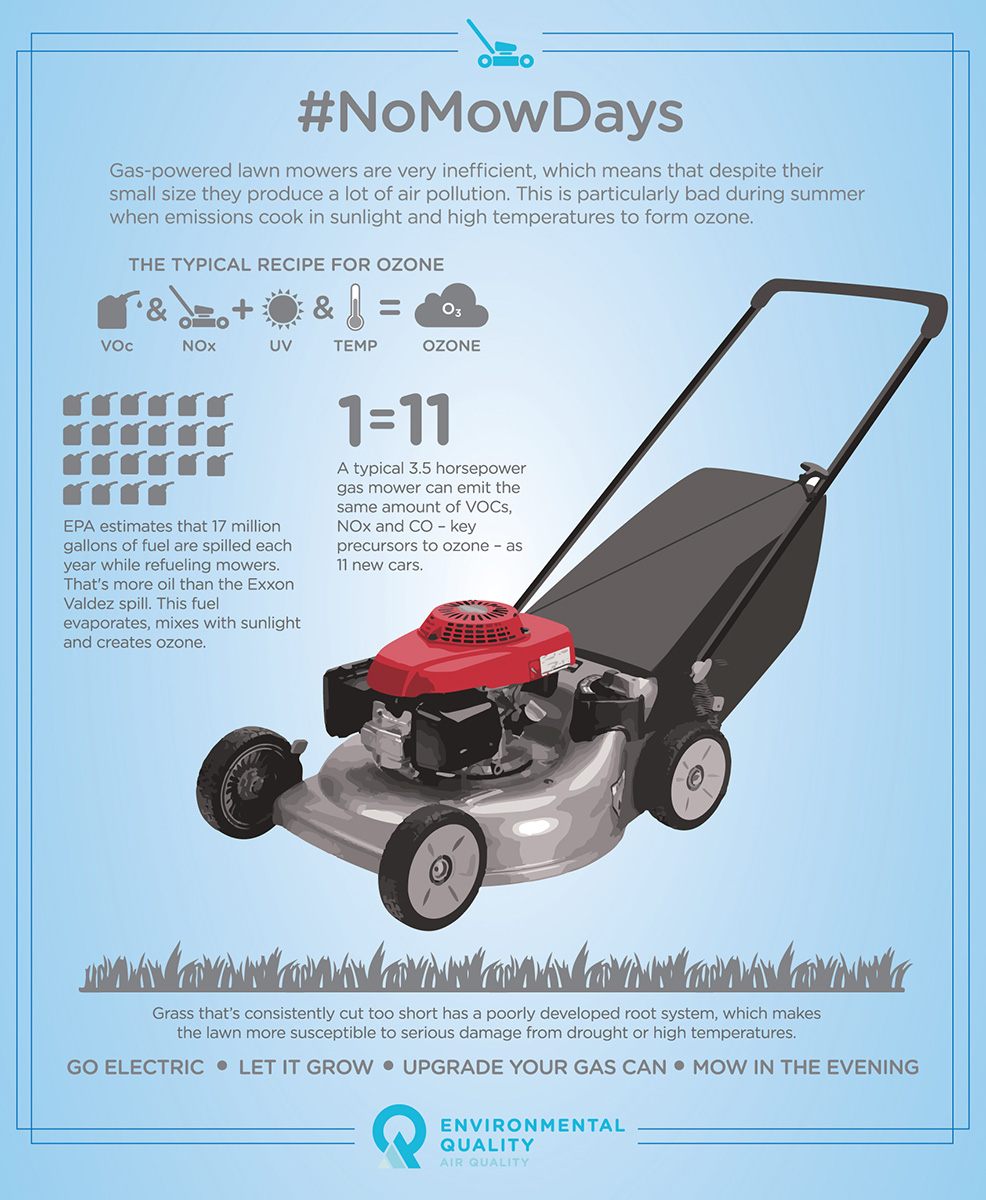Have you ever found yourself with a half-empty gas can from your lawn mower and wondered if you could use it to fuel your car? It seems like a simple way to save a few dollars, especially if you’re in a pinch.
But is it really a good idea? The answer isn’t as straightforward as you might think, and the implications could impact your car’s performance and your wallet. We’ll explore the reasons why you might consider using lawn mower gas in your car, the potential risks involved, and what you should do to keep your vehicle running smoothly.
Stay with us as we uncover the surprising truth behind this common question, and by the end, you’ll know exactly what steps to take the next time you face this dilemma.

Credit: deq.utah.gov
Differences Between Lawn Mower And Car Fuel
Using lawn mower gas in a car isn’t advisable. Car engines need high-octane fuel for optimal performance. Lawn mowers generally use lower-octane gasoline, which might harm car engines over time. Always choose the right fuel for each machine.
Understanding the differences between lawn mower and car fuel can save you from potential headaches and costly repairs. You might wonder if using lawn mower gas in your car is a feasible option. Let’s dive into the specifics so you can make an informed decision.What Is Lawn Mower Fuel?
Lawn mowers usually run on regular unleaded gasoline, similar to what you use for your car. However, they often require a specific octane level and might need a fuel stabilizer, especially if stored for long periods. Always check the lawn mower’s manual for precise fuel requirements.Car Fuel Specifications
Cars are designed to run on gasoline with particular octane ratings to ensure optimal performance. Modern vehicles often require a minimum octane rating of 87, and some high-performance cars need even higher. Using gas with a lower octane rating can lead to engine knocking or even damage.Octane Levels: Why They Matter
Octane rating measures a fuel’s ability to resist knocking during combustion. Lawn mower engines are low compression, so they can handle lower octane levels. Cars, particularly those with high-performance engines, need higher octane to run efficiently and safely.Differences In Additives
Car fuels often contain detergents and additives designed to clean and protect the engine. Lawn mower gas typically lacks these, potentially leading to residue build-up in a car engine. This difference might not seem significant, but it can impact your vehicle’s longevity and performance. Using lawn mower gas in your car might seem like a simple swap, but it can cause more harm than good. The wrong octane level can lead to engine knocking, reduced performance, and potential damage over time. Is the risk worth the convenience?Personal Experience And Lessons Learned
I once tried using leftover lawn mower gas in my old sedan, thinking it would be a cost-effective way to use up extra fuel. The result was a noticeable decline in my car’s performance and a trip to the mechanic. That experience taught me to always prioritize my vehicle’s fuel needs over convenience. Ensuring your car gets the right fuel is crucial. Have you ever considered the long-term effects of using the wrong gas? It’s a question worth pondering before making any fuel swaps.
Credit: www.yardcare.com
Potential Risks Of Using Lawn Mower Gas In Cars
Have you ever considered using lawn mower gas in your car? At first glance, it might seem like a quick fix when you’re running low on fuel. However, this decision can come with a set of risks that could potentially damage your vehicle. Let’s dive into the potential pitfalls of using lawn mower gas in cars and why it might not be the best idea.
Potential Damage To Engine Components
Lawn mower gas typically has a different octane level compared to what your car engine requires. Using it can lead to improper combustion, causing wear and tear on engine parts. Over time, this might result in costly repairs.
Consider the impact on your car’s fuel injectors. They are designed to handle a specific type of gasoline. Introducing lawn mower gas can clog these injectors, reducing efficiency and performance.
Impacts On Fuel Economy
Your car’s engine is optimized for a certain fuel grade to ensure smooth operation and optimal fuel economy. Using lawn mower gas can lead to increased fuel consumption, costing you more in the long run.
Imagine driving with an engine that struggles to perform. The reduced efficiency means more frequent trips to the gas station. Is it worth the hassle?
Potential For Emission Problems
Lawn mower gas might not meet the standards required for cars, which can lead to higher emissions. This not only affects your car’s performance but also contributes to environmental pollution.
Think about your car’s emission tests. Using inappropriate fuel can result in failing these tests, leading to potential fines or required repairs.
Effect On Vehicle Warranty
Most vehicle warranties specify the type of fuel to be used. Using lawn mower gas can void your warranty, leaving you responsible for repairs.
Have you checked your vehicle’s warranty terms? It might be worth reviewing to prevent unexpected costs down the road.
So, next time you consider using lawn mower gas in your car, ask yourself if the risks outweigh the benefits. Your car is a significant investment, and protecting it should be a priority. What other fuel-saving strategies have you tried that work well for you?
Safer Alternatives For Car Fuel
Using lawn mower gas in your car can be risky. It may harm your engine. There are safer alternatives for car fuel. These options ensure your car runs smoothly. They also protect the environment.
Electric Vehicles: A Green Choice
Electric cars are gaining popularity. They use batteries instead of gas. This makes them eco-friendly. Charging stations are now more available. Maintenance costs are often lower than gas cars.
Biofuels: A Renewable Option
Biofuels come from plants and organic waste. They are renewable and sustainable. Using biofuels reduces carbon emissions. Many modern cars can run on biofuels. Check your car’s compatibility first.
Hydrogen Fuel: The Future Of Driving
Hydrogen fuel is clean and efficient. It produces only water as a byproduct. Hydrogen cars are becoming more common. They offer long driving ranges. Refueling is fast, like gasoline.
Hybrid Cars: A Blend Of Technologies
Hybrid cars use both gas and electricity. They offer better fuel efficiency. Hybrids reduce gas consumption. This makes them a popular choice. They are ideal for city and highway driving.

Credit: www.amazon.com
Conclusion
Using lawn mower gas in a car is risky. It can damage the engine. Car engines need specific fuel. Lawn mower gas lacks additives. These additives help car engines run smoothly. So, it’s not ideal for cars. Stick to regular gasoline for your vehicle.
This ensures better performance and safety. Always check the car manual for fuel type. It’s best to use recommended fuel. Protect your car’s engine. Avoid unnecessary repairs. Keep it simple. Use the right fuel. Your car will thank you.

